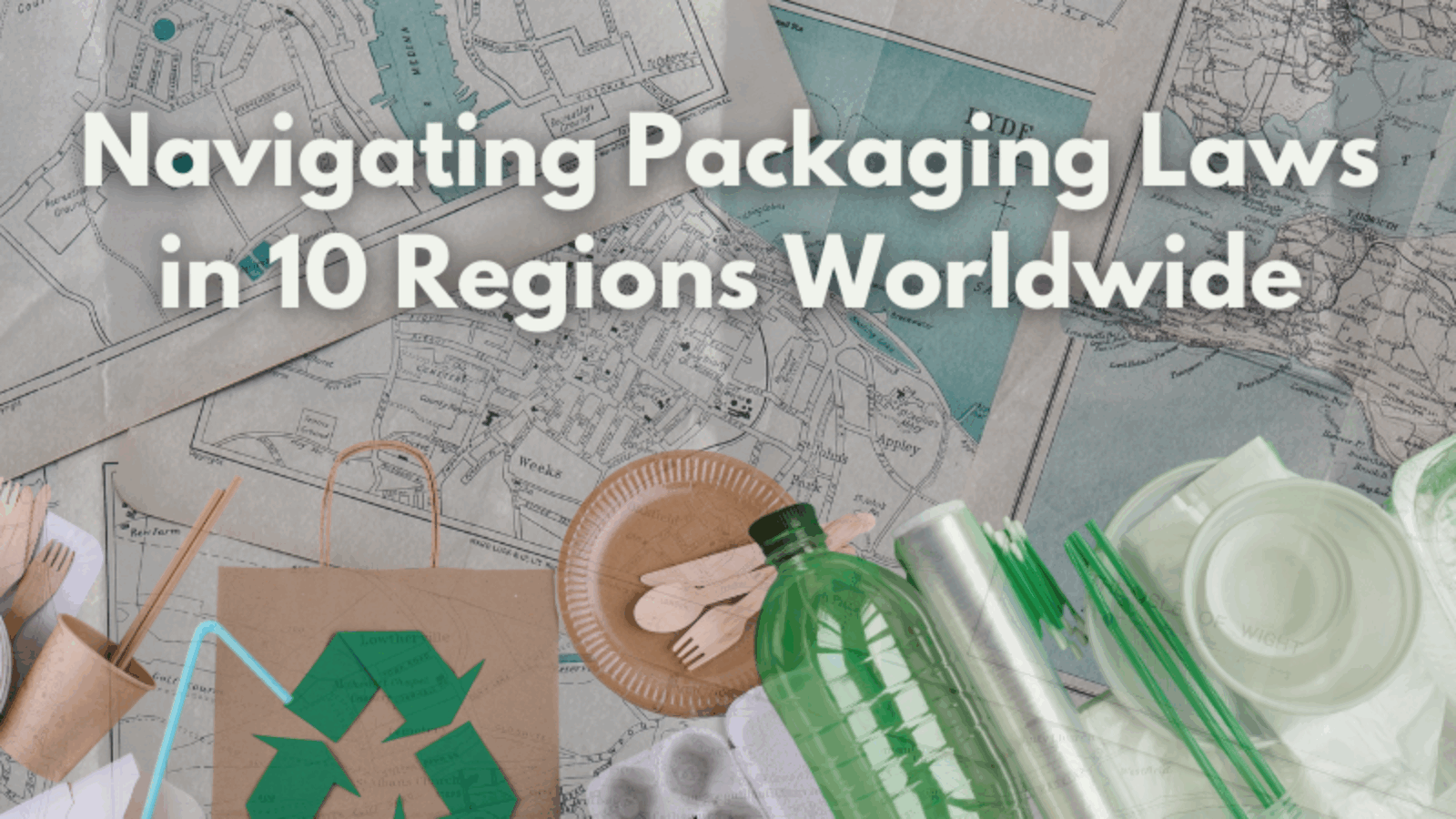As the environmental impact of packaging becomes a growing concern, countries worldwide are implementing stricter regulations to minimize packaging waste and encourage sustainable practices. The landscape of these regulations is constantly evolving, making it difficult for businesses to keep up. To support this effort, Trayak has compiled a comprehensive and regularly updated database of packaging regulations within EcoImpact-COMPASS. This resource aims to provide insight into key regulations across different regions, helping businesses stay informed and compliant.
Overview of Common Trends in the U.S.
Throughout the United States there are no federal regulations for packaging, rather all bans and regulations are implemented at the state level. Currently 12 of the 50 states have implemented regulations at certain levels, and this landscape is continuously evolving. The most common trends throughout the US include a ban on single-use plastic items (bags, EPS, straws), regulations banning PFAS in food packaging, and implementation of Extended Producer Responsibility (EPR) fees.
State-by-State Regulations & Policies:
- California
- Recent laws: SB 1335, SB 343, SB 54.
- Rigid Plastic Packaging Container (RPPC) Program.
- Sustainable Packaging for the State of California Act.
- Colorado
- House Bill 21-1162: Ban on single-use plastic carryout bags started on January 1, 2024.
- Transition period with fees for recycled paper or single-use plastic bags.
- Delaware
- Ban on plastic carryout bags effective since July 1, 2022.
- Promotion of reusable bags and recycling initiatives.
- Hawaii
- Honolulu’s plastic bag ban since July 1, 2015.
- Amendments to refine the ban and charge for reusable or compostable bags.
- Maine
- Waste Management Laws and regulations on plastic bags, beverage containers, and PFAS.
- Maryland
- Ban on expanded polystyrene (EPS) food service products since July 1, 2020.
- New Jersey
- Ban on single-use plastic carryout bags and polystyrene foam food service products.
- Establishment of Plastics Advisory Council and regulations on plastic straws.
- New York
- Oregon
- Ban on single-use checkout bags under the Sustainable Shopping Initiative (House Bill 2509).
- Vermont
- Single-Use Products Law targeting plastic waste.
- Restrictions on plastic carryout bags, straws, stirrers, and EPS containers.
- Washington
- Comprehensive regulations on plastic waste.
- Stricter labeling and recycled content standards.
- Washington D.C.
- Foam Ban since 2016 and extension to retail sales of foam products.
Global Packaging Regulations
Packaging regulations, bans, and policies around the world are continuously evolving and follow similar trends to those seen in the U.S. Common regulatory measures across various countries and regions include bans on single-use plastics, the introduction of Extended Producer Responsibility (EPR) fees, waste management regulations, and robust reporting frameworks. These measures reflect a global commitment to reducing packaging waste and promoting sustainable practices.
- Canada: The Single-use Plastics Prohibition Regulations (SUPPR) aim for zero plastic waste by 2030 through the prohibition of manufacturing, importing, and selling many single-use plastic items.
- China: Regulations aim to restrict certain plastic products, standardize recycling and disposal practices, and promote the use of recycled materials in packaging while ensuring food safety standards.
- European Union: The Packaging and Packaging Waste Directive (PPWR) and Corporate Sustainability Reporting Directive (CSRD) promote waste reduction, recycling, and transparency for businesses.
- Mexico: National and subnational laws target plastic packaging, with various states implementing bans on single-use plastics.
- South America: Countries like Argentina, Brazil, Chile, Colombia, and Uruguay have national action plans and bans on single-use plastics.
- India: Bans on single-use plastic items and the implementation of EPR guidelines are part of India’s efforts.
- Australia: The country is phasing out single-use plastic packaging in alignment with the 2025 National Packaging Targets.
- Japan: Regulations by the Ministry of Health, Labour and Welfare focus on packaging and product safety.
- Southeast Asia: Countries such as Indonesia, Vietnam, the Philippines, Thailand, and Singapore are introducing EPR schemes to manage packaging waste responsibly.
Conclusion
As efforts to combat climate change, reduce waste, and work towards a circular economy intensify, the regulatory landscape is becoming increasingly complex and dynamic. Countries around the world are enacting stricter laws to reduce packaging waste and promote sustainable practices, making it challenging for businesses to stay current with these changes. The U.S. shows significant variability in regulations at the state level, with trends such as bans on single-use plastics and the introduction of EPR fees becoming more common. Globally, countries like Canada, China, and those in the European Union are setting ambitious targets and implementing comprehensive frameworks to address packaging waste.
Trayak’s EcoImpact-COMPASS LCA software features a comprehensive and regularly updated database of packaging regulations, making it a vital resource for businesses committed to compliance and sustainability. By staying informed and adapting to these dynamic regulations, businesses can navigate legal complexities while advancing environmental objectives.

